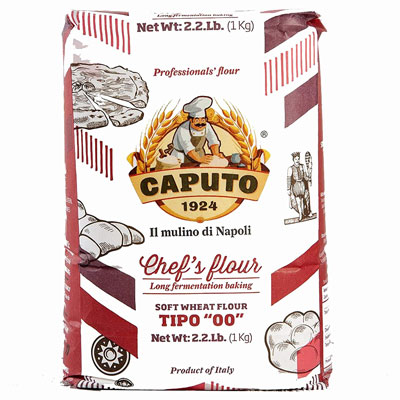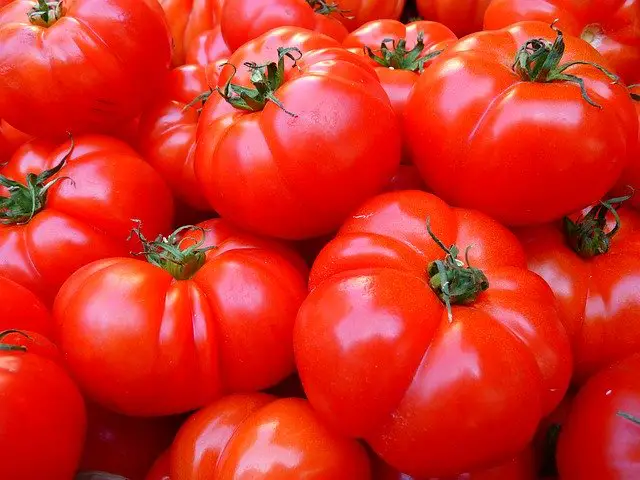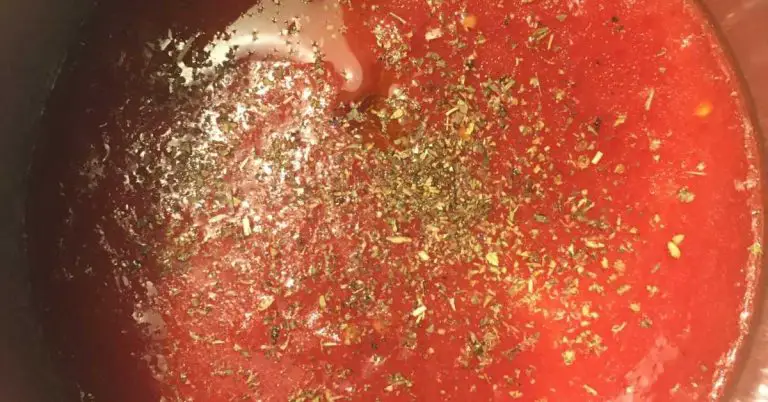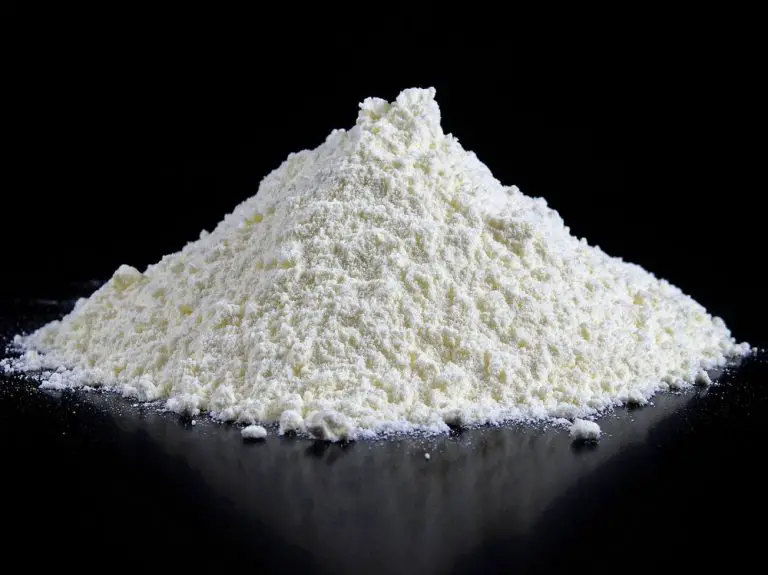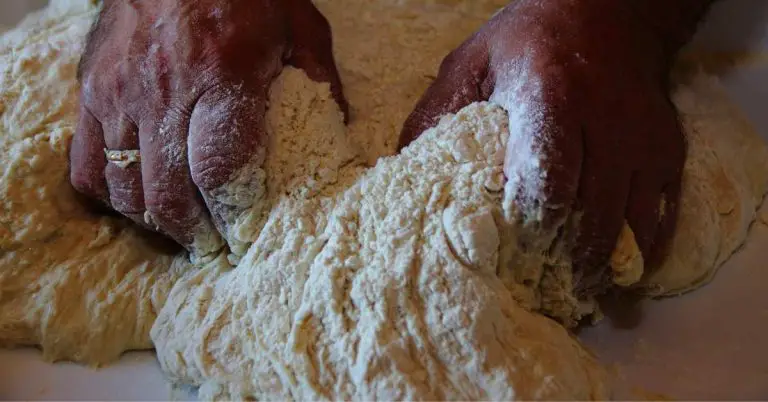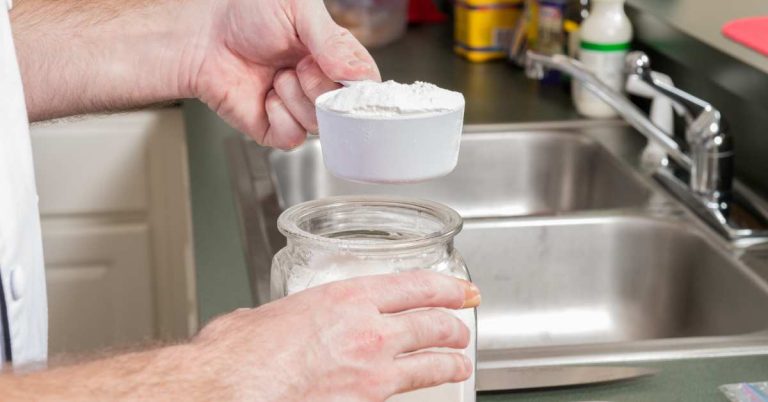What Is Pizza Flour: Tipo 00 Pizza Flour and What You Should Know About It
If you’re wondering what pizza flour is, you’re not alone. Pizza flour is a finely milled type of flour made from durum wheat and crafted specifically for making pizza. This flour is all about getting that perfect crust: light, airy, and crispy.
In Italy, they call pizza flour “Tipo 00”, and it’s formulated especially for making Neapolitan pizza styles.
Sure, you can make pizza with bread flour or all-purpose flour, but there’s a reason 00 flour is in a league of its own. Tipo 00 pizza flour excels at producing strong, stretchable doughs that bake into delicate, chewy crusts. It stands in stark contrast to other types of flour with larger, coarser grains and lower gluten content.
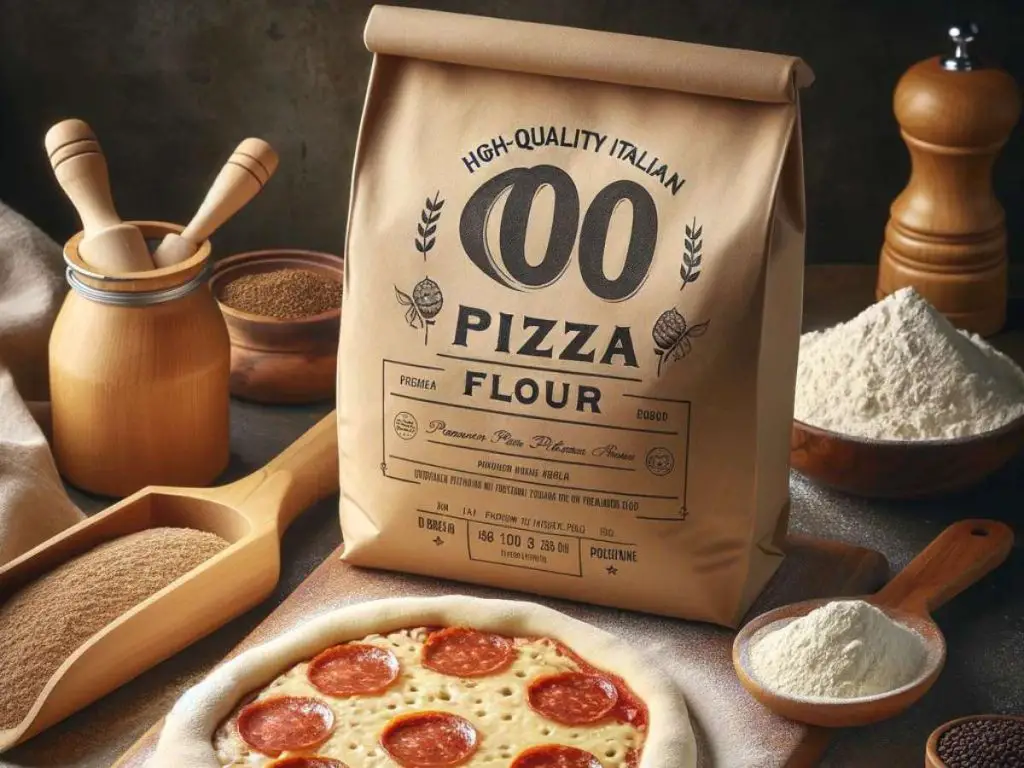
Why Tipo 00 Flour Reigns Supreme in Pizza Making
Tipo 00 flour is often hailed as the best pizza flour, especially when it comes to making Italian pizza styles. This flour, particularly varieties like Caputo’s “Chef’s Flour”, is used to make pizza worldwide. But it’s not just about being finely milled or high in protein – lots of flours can claim this.
Instead, authentic pizza flour is all about the balance. This flour is the sweet spot for a dough that’s just right – not too tough, not too soft.
Good Pizza Crust Is All About Protein Content
Protein in flour isn’t just a nutritional stat, it’s a key player in the pizza-making game. More protein equals stronger gluten bonds – think of it as the muscle of your pizza dough. You want that protein level above 10%, or else your dough is going to be a wet mess that tears easily.
Water Absorbability: A Game-Changer
Here’s something not many people talk about: water absorbability in flour is crucial. It’s all about how much water the flour grains can take before the dough becomes oversaturated and falls apart. Aim for a flour with an absorption rate of 13% or higher. Trust me, it makes a difference in the crust’s taste and texture.
Unfortunately, most flours in the US don’t list the absorption rate on the packaging, so you might need to contact the manufacturer or do some experimenting on your own. If the absorption rate is too low, you’ll notice that your dough lacks structure and tears easily.
Does 00 Pizza Flour Have High or Low Protein Content? It depends…
When discussing pizza flour, there’s a common misconception that ’00’ refers to protein content. However, the ’00’ classification is actually about the grind size and not directly linked to protein levels. Let’s break down the difference between low and high protein pizza flours:
00 Flour: Not Just About Protein
- Protein Variability in 00 Flour: 00 flour’s protein content can vary by brand, typically ranging between 8 and 10 percent. This is contrary to the myth that 00 flour is always high in protein. In fact, it’s made from softer wheat varieties, contributing to its lower protein content.
- High-Protein 00 Flour Varieties: Some 00 flours, however, do have higher protein content, around 12-14%, making them better suited for bread and yeast-based products. These high-protein 00 flours offer the strength needed for pizza dough without the toughness associated with other high-protein flours.
Understanding the Impact of protein on Pizza Dough
- Low-Protein Flour: Flours with lower protein content, like some 00 varieties, produce a tender, light crust with less chewiness, ideal for authentic Neapolitan pizzas.
- High-Protein Flour: Higher protein flours, including some 00 and all-purpose varieties, yield a chewier crust, more in line with American-style pizzas.
The key takeaway here is that 00 flour does not inherently mean high protein. Its classification focuses on the milling process and the fineness of the flour. The choice between low and high protein flours should be guided by what kind of style of pizza crust you’re looking to get.
Difference Between 00 Flour and All-Purpose Flour
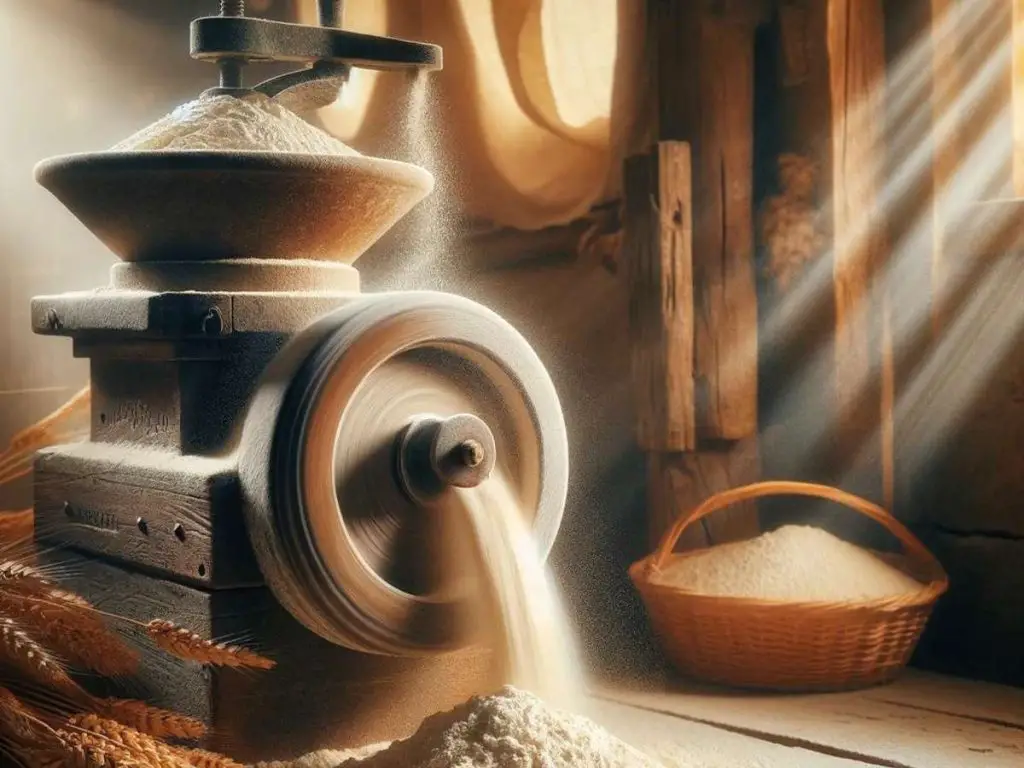
Understanding the difference between high-protein 00 flour and all-purpose flour is crucial for perfecting your homemade pizza. Here’s a brief rundown:
- Fineness and Texture: High-protein 00 flour is milled to a super-fine texture, creating a silky dough. This leads to a tender, stretchy crust, essential for a superior pizza experience. All-purpose flour, while fine, isn’t as refined, resulting in a denser, bread-like crust.
- Protein and Gluten Content: Despite both being high in protein, high-protein 00 flour forms a softer, more elastic gluten network, perfect for a Neapolitan pizza with an airy, chewy crust. All-purpose flour’s gluten is stronger and more elastic, suitable for a New York-style pizza that’s chewier and more robust.
- Dough Handling and Baking: High-protein 00 flour, known for optimal water absorption, makes a responsive dough that’s easier to shape, ideal for Italian pizza recipes. It’s also great for long fermentations, maintaining dough elasticity. All-purpose flour, on the other hand, requires more effort to shape, and it’s more suited for bread-like, less stretchable pizza dough.
Basically, choosing between high-protein 00 flour and all-purpose flour affects everything from dough elasticity to crust texture, playing a pivotal role in whether your pizza turns out light and airy or chewy and hearty.
Hard Wheat Vs Soft Wheat
One of the hallmarks of 00 pizza flour is its soft texture which comes from the soft wheat it’s milled from.
Hard Wheat: The Backbone of Strong Dough
When it comes to pizza dough, hard wheat plays a big role. This type of wheat leads to flour that’s high in gluten, meaning it’s strong and elastic – great for bread but maybe too tough for that perfect pizza crust.
Soft Wheat: The Secret to Perfect Pizza Dough
Then there’s soft wheat, the star of the show in 00 flour. It’s less elastic than hard wheat, making it just right for pizza dough. It’s strong but not so springy that you can’t shape it easily. This is where 00 flour shines – it’s typically made from this kind of wheat, giving you a dough that’s easy to work with and bakes into a light, delightful crust.
Our Preferred 00 Pizza Flour: Caputo 00 Chef’s Flour
In my kitchen, Caputo 00 Chef’s Flour is the Italian flour of choice for crafting perfect Italian pizzeria-style gourmet pizza at home. Here’s why:
- Ideal for Long Fermentation: This flour is a game-changer for doughs that need long fermentation, holding its shape for 24-48 hours or more. It’s perfect for those extended, slow proofs typical in gourmet pizza making. I use this kind of flour specifically in my high-hydration pizza dough recipes.
- High Protein and Gluten Content: With 13% protein and lots of gluten, this 100% durum wheat Italian flour balances strength and elasticity, creating a soft, yet robust crust – perfect for authentic Neapolitan pizza.
- Great for Home Ovens: Designed for high temperatures of 500 to 600°F, Caputo Chef’s 00 Flour is ideal for home chefs wanting to replicate the quality of a professional Italian pizzeria.
- Not just for Neapolitan pizza: One of my favorite tips is mixing 00 flour with bread flour for New Haven and New York style pizza. This mix provides the right balance of light and delicate with robust and chewy, perfect for emulating high-end NYC style slices.
Caputo 00 Chef’s Flour stands out as a gourmet Italian flour that’s not just for any pizza, but for a truly exceptional pizzeria experience at home. Unfortunately, it’s not typically available in most grocery stores, but you can pick some up on Amazon if you’re interested in trying it out.
Pizza Dough 101: Using 00 Flour
Making pizza dough with 00 flour isn’t rocket science, but it’s close. You need to get your ratios right, understand how your dough behaves, and know how it should feel. This flour absorbs water much better than others, giving you a responsive, stretchy dough that’s a joy to work with.
What You Need To Know About Using 00 Flour For Pizza Dough
- Optimal Water Absorption: 00 flour absorbs water like a champ, meaning you can make a more hydrated, tender crust.
- Super-Fine Texture: This flour is milled finely, which makes your dough smooth and your crust light.
- Protein Content Matters: Around 11% to 12.5% protein content in 00 flour hits the sweet spot for gluten development.
- Fermentation Friendliness: 00 flour can handle long fermentation times, making for a flavorful dough.
- Versatility: It’s not just for pizza; 00 flour can work wonders in pastries and even pasta.
Making Pizza at Home: It’s Not Just About the Flour
Yes, flour is important, but let’s not forget the oven. You need high heat to bake a perfect pizza, and unfortunately, most home ovens just don’t cut it. That’s why pizzerias with their blazing hot ovens can achieve that perfect crust.
For the best results when using a regular home oven, consider investing in a pizza steel or pizza stone. A pizza steel is the only way to come close to the kind of crust you can bake in a dedicated pizza oven without actually owning one.
Toppings, Technique, and Tools
And then there’s the whole world of toppings, techniques, and tools. You could have the best flour in the world, but if your topping game is off or you don’t let your dough ferment properly, you’re not hitting peak pizza.
Final Thoughts: 00 Flour Is Just the Beginning
Remember, while 00 flour is considered the gold standard for making pizza, it’s just one piece of the pizza puzzle. It’s about how you use it, how you bake it, and how you top it. So go ahead, get your hands on some good 00 flour, but don’t stop there. Dive into the art of pizza making. It’s a journey worth taking.

